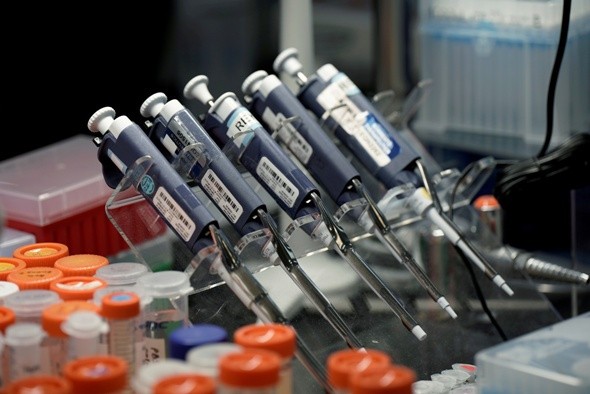Coronavirus Antibodies Found in Only a Small Portion of Americans, Study Says
Coronavirus antibodies are found in only a small portion of the American population, leaving most of those in the U.S. still at risk of contracting the virus.

A new nationwide study published on The Lancet found that, less than 10 percent of Americans showed signs of coronavirus antibodies. This means they've fought off the virus before, or have been infected.
They found that coronavirus antibodies can be found in about 9.3 percent of the U.S. population. But these numbers range depending on location.
The West showed that 3.5 percent had antibodies, but an average of 27 percent was seen on the Northeast, CNN reported.
Meanwhile, seven states showed no signs of the antibodies based on their sample.
Published on Friday, the study drew data from over 28,000 dialysis patients from around the U.S., reported The Wall Street Journal.
The researchers analyzed plasma samples from more than a thousand facilities in 46 states run by one lab.
Other than location, it also found a range in levels of antibodies across race. In the study, they found that Hispanic or Black patients living in low-income neighborhoods were more likely to have antibodies.
Stanford University medicine professor and study author Dr. Julie Parsonnet said the study had a clear message. It confirms that even though the country has seen high numbers of COVID-19 cases, people who have the antibodies to fight off the virus are still low.
No Closer to Herd Immunity
"We haven't come close to achieving herd immunity," Parsonnet said.
Shuchi Anand, nephrologist at Standford and co-author of the study, also supported her colleague's statements.
"If we're measuring herd immunity by antibodies, then this study does not support that there is herd immunity," Anand said.
Parsonnet also warned that, until an effective vaccine is approved, people at risk should be reached out to for preventive measures.
Anand said their findings "track" what is known right now about the virus. Its intense in the northeast and is moving throughout the country.
Anand did note that the study's data was gathered back in July. It is likely that more people may have been exposed to the virus in the South and West since then.
A CNBC article pointed out that even those with coronavirus antibodies are not completely immune to the virus. But there is some level of protection from the antibodies.
Scientists are still looking into the level of protection these antibodies create and how long the protection may last.
Why Dialysis Patients?
The researchers said they chose to study on dialysis patients in the U.S. because they undergo routine monthly lab studies.
They found that since this is the case, there was no need for "considerable infrastructure and expense." There won't be much trouble in collecting samples and other challenges due to COVID-19.
They also said the risk factors for getting the COVID-19 and developing severe disease "are the rule rather than the exception in the U.S. dialysis population."
Dialysis patients, as the researchers thought of it, were their "ideal sentinel population."
The effects of antibodies to the human body may still be uncertain, but there can still be positive effects drawn from this study. Research on this case on an ongoing basis can lead to answers that scientists have been waiting for.
Check these out!
CDC Removes Warning About Spread of COVID-19 Through Air
US COVID-19 Cases Exceeds 7 Million as Some States Relax Restrictions
Subscribe to Latin Post!
Sign up for our free newsletter for the Latest coverage!

















